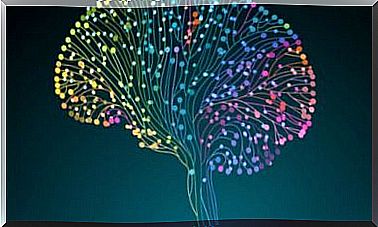Do You Know How We Generate Social Expectations And How They Affect Us?

We deal with many people on a daily basis, some of whom are well known and some not. We have a concept of the personality of each of them, deduced through the interactions we have had with these people. This leads us to generate a series of social expectations regarding the behavior of each of them.
Social psychology has been largely concerned with the study of expectations. Thanks to this, we know that these are closely related to the impressions we have of others. Therefore, let’s first explore the topic of social perception.
Social perception
Human beings, deprived from birth of the necessary resources to be independent, need complex social relationships. This is why our brain is prepared to perceive our social environment and to evaluate it. A very important element in controlling our relationships is to know how are the people who make up our social environment. And this is where social perception comes into play.
A simple and interesting model to explain this phenomenon is Fiske’s social perception model . According to this model, right after we meet a person, we put them into a category. And that person will stay in that category, unless we deepen the relationship and find something that prompts us to change it.
In addition, if it interests us, we will check if its behavior adapts to this category; and if not, we will adapt or change the category until that person is categorized or conceptualized.

This is a very important process as without it the job of managing our relationships would be much more complicated. However, it is important to keep in mind that this is a quick and useful process, but not precise. People present complex personalities that are closely related to context, something we can hardly include in categories. However, this little “mental shortcut” is useful for us in knowing how to treat the people around us.
Once we have categorized our social environment and formed our own concepts of each of the people in it, we will begin to generate expectations. What exactly are the expectations?
Social expectations
Social expectations are the ideas we have of how someone in our social environment will behave in the future or in a given situation. These expectations arise when we generate an impression on a person, associated with the image we create. It helps us imagine how we should behave and predict the behavior of said person.
This behavior of generating expectations about our relationships performs an adaptive function. It is quite easy to guess which one: in an artificial environment, based on complex societies like those in which most of us live, anticipating the behavior of others allows us to adapt our behaviors and therefore to benefit greatly from social interactions . Although this is not a precise process, being able to anticipate, and sometimes be wrong, is better than never doing it and never achieving it.
It is important to know that these social expectations or the behavior of others greatly affect our own behavior. We don’t treat everyone the same, and we don’t treat the same person the same in different situations. This can be observed in many everyday situations.
In addition, we try to make others meet our expectations, either by forcing them indirectly or by changing our perception of what others are doing. Moreover, this process does not only work in this sense: being also aware of the expectations that we generate in others, we will also adjust our behavior to satisfy the ideas of the latter.
A simple reflection
Our lives are filled with social expectations, both towards others and from others about us . Therefore, to facilitate our relationships we tend to conform to these expectations since breaking with them can give way to uncertainty, and therefore to anxiety. We must not lose sight of the fact that we are in the presence of a process which is not precise, and that these expectations will therefore not always be fulfilled.
The error when assigning an expectation leads to three situations : (a) the person who is the object of the expectation changes behavior in order to adapt to it, (b) the person who generates the expectation changes her perception to believe she is adjusting to her expectations, (c) the correlation between expectation and behavior is broken, and we assume we have made a mistake.

While the first two options avoid social conflict and are successful in maintaining a relationship early on, they can also lead to major problems in the long run. This is because in the first option, the person changes their behavior to satisfy another, which leads the other to generate the wrong idea of what they really are. And in the case of the second option, the person who generates the expectation is unconsciously mistaking how the other person is.
The third option is the one that causes greater anxiety, due to the lack of control over what has happened. Despite this, if the relationship overcomes or assumes this anxiety, a more stable relationship will be established. It is possible that in momentary relationships (for example, a neighbor) the first two options are suitable since there is no long term relationship or close bond between people. However, it would be a great neglect to behave in this way in our deepest relationships.
Now, how do you think you are performing compared to your expectations? And how would you like to behave?










